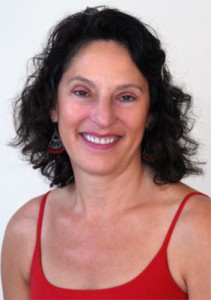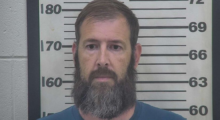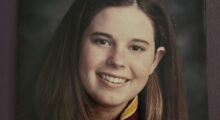 Kathy Jacobson is a body worker and life coach in San Francisco, who also works as an end-of-life counselor. I sat with her to discuss her entry into this burgeoning, and much needed, field of therapy. Most people do not know what end-of-life counseling is. Kathy’s integrative therapy addresses both the mind and body of her clientele, where she has training in a ranging from Transformational Bodywork, to Voice Dialogue, and Reiki. She also speaks about death with a refreshingly direct fluency and ease, effectively counseling through a versatile approach that tailors to the client’s level of comfort, and openness, in discussing their spirituality.
Kathy Jacobson is a body worker and life coach in San Francisco, who also works as an end-of-life counselor. I sat with her to discuss her entry into this burgeoning, and much needed, field of therapy. Most people do not know what end-of-life counseling is. Kathy’s integrative therapy addresses both the mind and body of her clientele, where she has training in a ranging from Transformational Bodywork, to Voice Dialogue, and Reiki. She also speaks about death with a refreshingly direct fluency and ease, effectively counseling through a versatile approach that tailors to the client’s level of comfort, and openness, in discussing their spirituality.
Julia: How did you discover end-of-life counseling?
Kathy: It was a natural progression for me after working with this one client specifically. She had seen me for many years, and I worked with her husband as well. Unfortunately, she developed Parkinson’s disease, and she began losing control of her motor skills and speech. She was a person who was very much ‘in her head,’ and related to people on an intellectual level, so it came as a big blow to her when she began losing her ability to speak. She had never been a happy woman; she held a lot of tension in her body, bad arthritis in her fingers.
She had a hard time being open to intimacy; she and her husband couldn’t discuss things very easily together and kept many affairs around the household separate. For example, their finances were kept totally separate, where they kept jar in the kitchen so that both of them could put their own money in to use for buying the joint supplies. The distance between them was palpable, though when she started to get ill and I asked him what he was most grateful for, he would only talk about her. There was a strong love there, and I would work on encouraging this as a dialogue.
The distance between them was palpable, though when she started to get ill, and I asked him what he was most grateful for, he would only talk about her.
After suffering for many years, she began to not do the simplest things, like feed herself, and wanted desperately to end her life. I helped her research how to facilitate a dignified death for when her illness would render her incapable of having any sort of life worth living. I found The Peaceful Pill on the Internet, and through this she discovered a clinic in Switzerland called Dignitas that specialized in euthanasia.
Five days before she and her husband left for Europe I performed a ritual for their family. She always believed that when you die, that’s it, it just goes black. I shared with her what I believe – that the material world is just the tip of the iceberg, and that your spiritual body is tenuously encased in your physical form – though I held a space for her own beliefs and didn’t push mine onto her. In the middle of the ritual, among her husband and daughter, she was able to write on a white-board something that deeply affected me. It said “I felt the spirit of God, and it felt good.” She was then ready for her journey to Dignitas.
Julia: Tell me what went on in the counseling you provided for them?
Kathy: I have always had the ability to discuss difficult subjects blatantly, so it’s very easy for me to engage [in] a dialogue on death. Initially I worked [out] some technical details, such as helping her get her affairs in order, and being able to discuss what she wanted with her husband. I worked with them both separately, and then together.
Read part 2 here.
Visit Kathy Jacobson’s website.
Related articles
- Pondering the Last Taboo: Death & Dying – An informal chat with SevenPonds: Let’s open the conversation on end-of-life! (sevenponds.com)
- Reiki and “The Seven Spritual Laws of Success” (reikigateway.wordpress.com)
- Using Bodywork for Post-trauma Healing (laughingwomynblog.wordpress.com)

 What is End-of-Life Counseling? An Interview with Kathy Jacobson (Part 1 of 2)
What is End-of-Life Counseling? An Interview with Kathy Jacobson (Part 1 of 2)


 Funeral Home Owner Chris Johnson Spending Halloween in Jail
Funeral Home Owner Chris Johnson Spending Halloween in Jail
 Our Monthly Tip: Toast a Loved One with a Personalized Glass
Our Monthly Tip: Toast a Loved One with a Personalized Glass
 My Cousin’s Death Taught Me the Meaning of Life
My Cousin’s Death Taught Me the Meaning of Life














